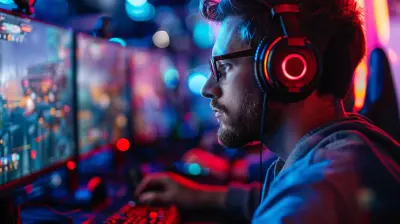The Benefits of Cooperative Gaming for Emotional Support
5 August 2025
In an age where stress, anxiety, and isolation seem to be the norm, more people are turning to video games—not just for entertainment, but for emotional support. And while the solo experience can be comforting on its own, there’s something uniquely powerful about cooperative gaming. Whether it's teaming up in online raids, building something epic in a sandbox world, or just vibing in chill co-op modes, cooperative gaming is changing the way we experience emotional bonding and support.
So, how does playing games with others actually help us feel better mentally and emotionally? Let’s break it all down.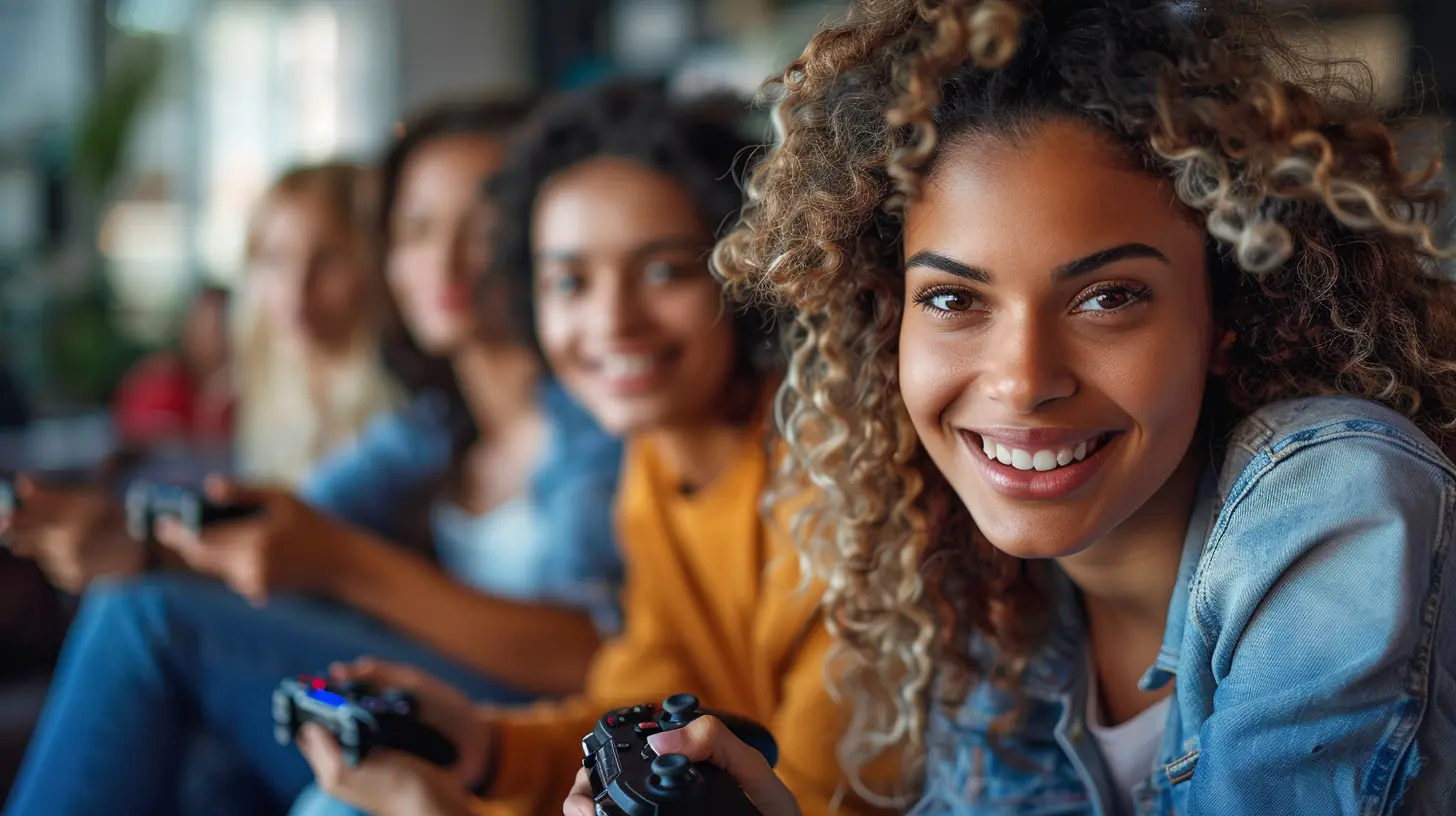
What Is Cooperative Gaming?
Cooperative gaming, or “co-op” gaming for short, involves multiple players working together to achieve common goals within a game. Instead of competing against each other, players collaborate—sharing resources, strategies, and time—to win or progress together.Cooperative games come in many shapes and sizes:
- Story-driven RPGs like It Takes Two or Divinity: Original Sin II
- Survival games like Minecraft or Don’t Starve Together
- Loot shooters and action games like Destiny 2 or Borderlands
- Casual games like Overcooked, Stardew Valley, or Animal Crossing (with multiplayer)
- MMOs and massive online co-op games like Final Fantasy XIV or Warframe
The key element? Shared experience. And that’s where the emotional magic happens.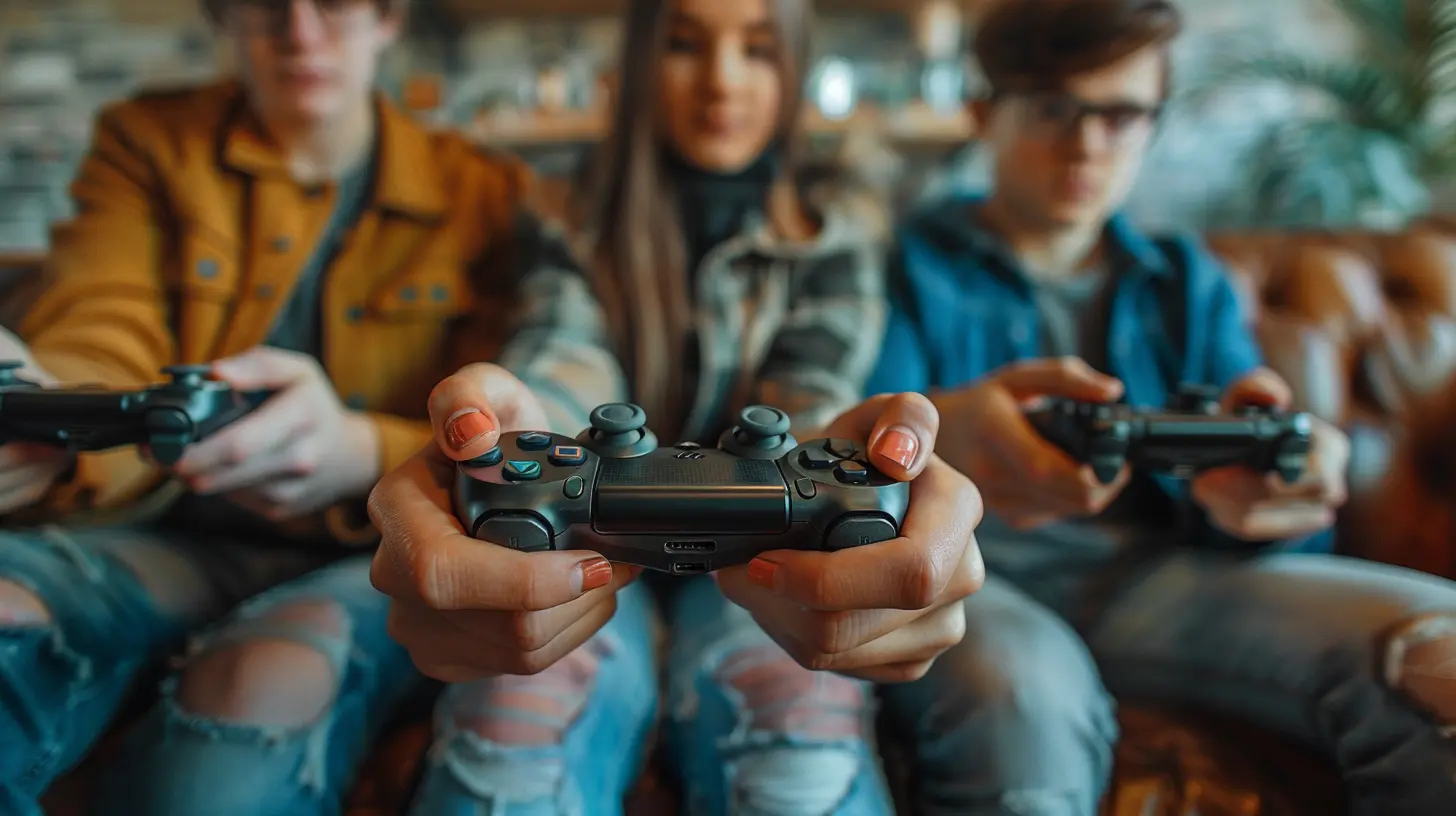
The Psychology Behind Cooperative Gaming
At its core, co-op gaming taps into some deep psychological needs: belonging, connection, and purpose. When you're working side by side with someone—even virtually—your brain interprets that teamwork just like it would in face-to-face situations.Dopamine and Accomplishment
You know that rush you feel when you clear a tough level or beat a boss with friends? That’s dopamine kicking in. And when it happens in a co-op setting, it’s amplified. Why? Because you’re not just succeeding for yourself—you’re succeeding together. That sense of shared achievement reinforces positive emotions.Oxytocin and Emotional Bonding
Working together, especially under pressure, builds trust. And trust creates closeness. Oxytocin—the hormone linked to bonding—gets a boost when we cooperate and support each other. Think of it like emotional glue. Cooperative gaming essentially becomes a digital version of a trust-building exercise.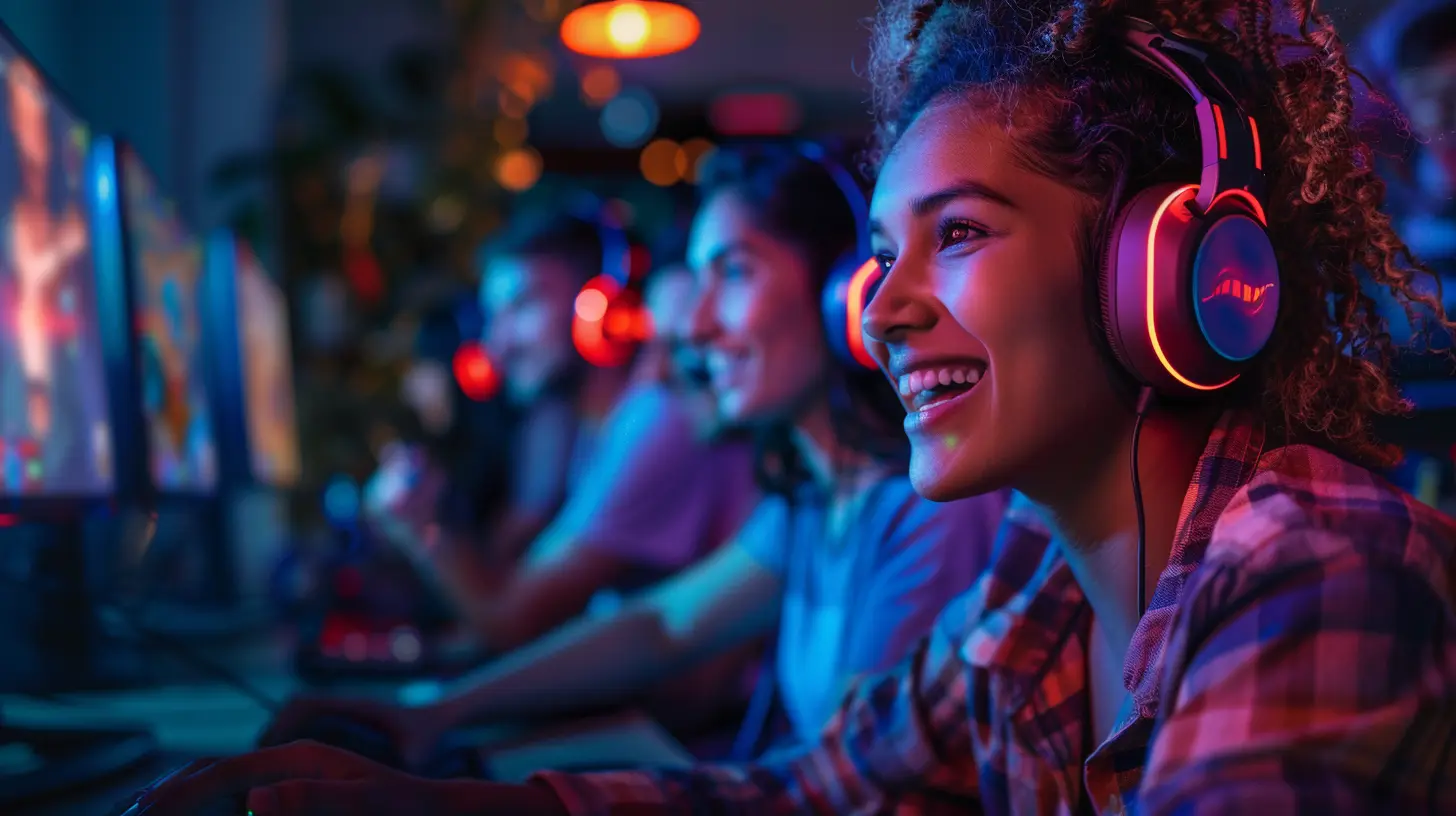
Real-Time Emotional Support in Digital Spaces
Let’s face it—life can be overwhelming. Whether it's school, work, relationships, or just the noise of the world, it’s easy to feel like you're going through things alone. But co-op gaming creates a space where that loneliness can shrink, even if just for a while.Shared Escapes
Ever had a bad day and just wanted to run away with a buddy and slay dragons or farm virtual crops? Co-op games give you that escape. But unlike solo gaming, you’re not escaping alone. You're venturing out with someone who gets it. That shared escape can be surprisingly healing.Talking Without the Pressure
Gaming with friends often leads to conversations that might not happen face-to-face. It’s like talking without the spotlight on. When your hands are busy and your mind is half in the game, it’s easier to open up. It’s not therapy—but man, it can feel close.How many times have you vented to a friend while grinding XP or waiting in a lobby? That’s the beauty of it—co-op games create space for real talk without forcing it.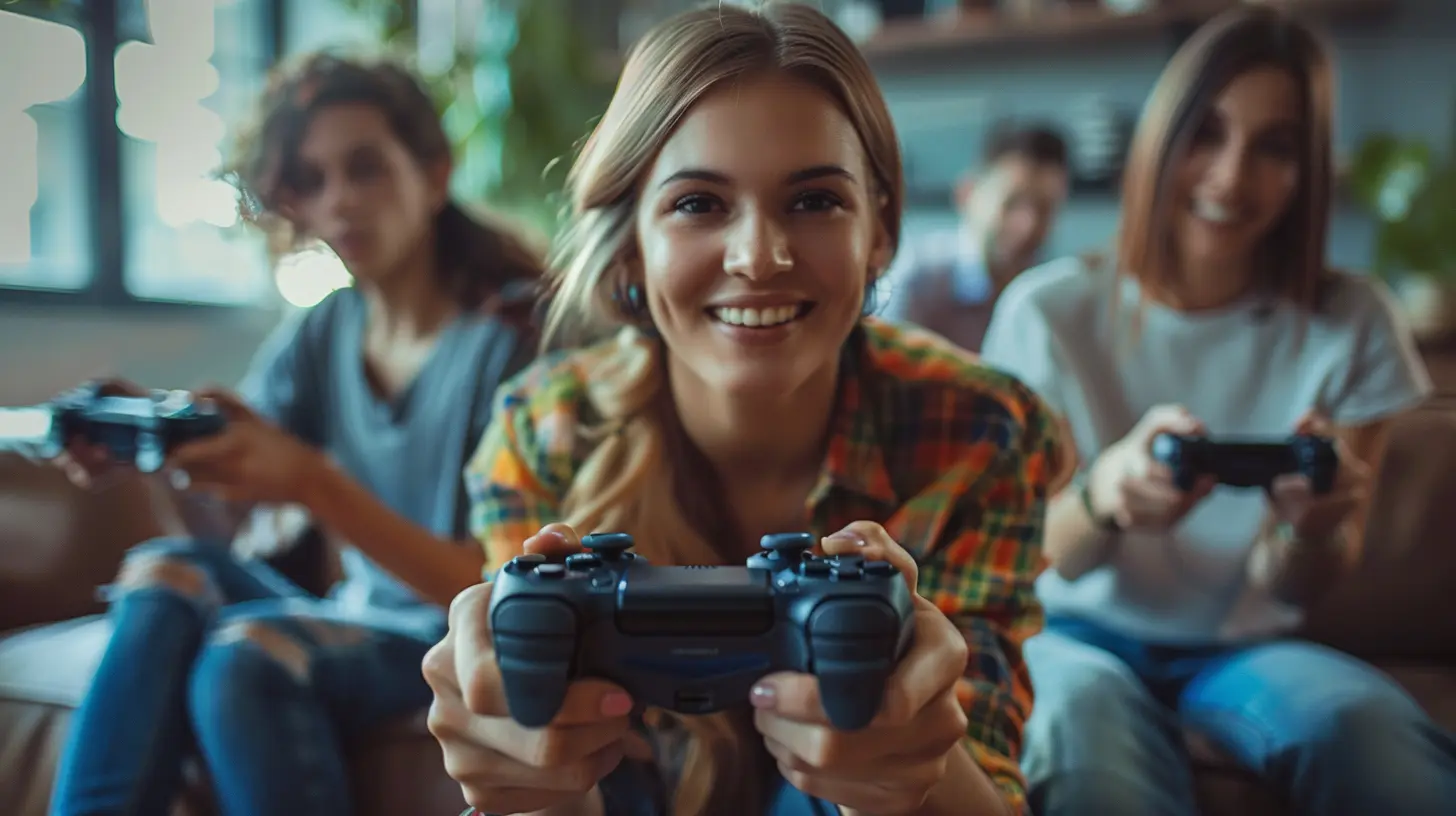
Cooperative Gaming and Mental Health
More and more therapists and mental health professionals are recognizing video games as potential tools for emotional support. No, they’re not replacing therapy—but they’re becoming a valuable supplement, especially when connection is hard to find elsewhere.Reducing Social Isolation
Social isolation is a major contributor to anxiety and depression. Cooperative gaming directly combats that. Regular co-op sessions, even with online friends you’ve never met in person, can create routines, expectations, and a sense of belonging.That feeling—knowing someone’s logging in just to play with you—can be incredibly validating.
Balancing Emotions Through Play
Games are naturally good at regulating emotions. They help people feel in control, offer challenges that are manageable, and provide constant feedback. Add a cooperative partner into the mix, and those effects multiply.Frustrated about life? Smash some zombies together. Anxious about the future? Plan and build a virtual base with a friend. Angry? Get into a fast-paced co-op shooter and release that tension. These shared activities can be a healthy way to process emotions.
Building Relationships That Matter
Friendships forged in battle (or Minecraft) are surprisingly strong. Cooperative gaming often leads to lasting friendships—and sometimes even romantic connections. Why does that happen?Mutual Goals = Strong Connections
Imagine you and someone else are both striving for the same goal, supporting each other along the way, celebrating wins and recovering from losses. That’s a blueprint for any strong relationship, whether it’s in a video game or in real life.In many ways, co-op games act as relationship simulators. You practice communication, teamwork, patience, and empathy—all while having fun.
Cross-Boundary Friendships
Cooperative gaming also breaks down boundaries. People from different countries, cultures, and walks of life come together to play. It creates a safe and inclusive space for people to meet others they’d never encounter otherwise.For those who might struggle with traditional socializing due to shyness, anxiety, or neurodiversity, co-op games offer an alternate route to connection.
A Safe Space for Vulnerability
Here’s something you don’t hear often: gaming can be a vulnerable space, in a good way.When we’re in the heat of a co-op mission, our walls come down. We make mistakes. We ask for help. We celebrate small wins. We genuinely care about how the other person is doing—not just in-game, but in real life, too.
This kind of mutual vulnerability is rare in modern adult life. But cooperative games normalize it. They create room for empathy and curiosity about each other’s well-being.
Cooperative Games That Encourage Emotional Support
Not all co-op games are created equal when it comes to emotional bonding and support. Some titles are especially good at fostering trust, communication, and teamwork. Here are a few fan favorites:1. It Takes Two
A two-player adventure literally built around cooperation. It's filled with emotional storytelling and forces players to work together in creative ways.2. Stardew Valley (Multiplayer Mode)
Chill, cozy farming meets meaningful interaction. It’s low-pressure but packed with potential for heartfelt conversations.3. Minecraft
A sandbox of infinite possibilities. Build, survive, explore—together. Minecraft has long been a haven for friends and families alike.4. Deep Rock Galactic
Space dwarves mining and blasting aliens in caves? Sounds chaotic, but it’s all about teamwork and communication.5. Don’t Starve Together
Survival games build trust fast. Coordinating strategies to avoid disaster makes every moment count.6. Phasmaphobia
Horror with friends can be oddly bonding. Facing ghosts in creepy houses might not sound therapeutic, but laughing through fear is real emotional release.Advice for Using Co-Op Games for Emotional Support
If you’re thinking about using cooperative gaming as a tool for emotional wellness, here are a few tips to make the most of it:- Choose the right game: Go for titles that match your energy level and emotional state. Some days you need something chill; others, something intense.
- Pick your player(s) wisely: Play with people who respect your time, space, and headspace.
- Talk openly: Don’t be afraid to share how you're feeling outside the game. Chances are, your co-op partner is also going through something.
- Create a routine: Weekly co-op sessions or even short daily log-ins can create a comforting rhythm.
- Know your boundaries: If you’re overwhelmed, it’s okay to take breaks. The game—and your friends—will be there when you're ready.
The Future of Cooperative Gaming and Mental Health
As the gaming industry grows, more developers are taking mental health and social connection seriously. We’re seeing more games designed to build empathy, cooperation, and communication—not just competition.With VR and social gaming platforms on the rise, digital spaces are becoming more immersive and supportive. In the coming years, we may see co-op gaming integrated into mental health programs and therapeutic practices more formally.
But until then, a good co-op game, a reliable friend, and a solid internet connection? That’s already powerful therapy.
Final Thoughts
Cooperative gaming is more than just a way to kill time or rack up loot—it’s a powerful tool for emotional support, connection, and healing. It provides a unique space where we can be ourselves, rely on others, and build relationships rooted in shared experiences.In a world that often feels disconnected, co-op gaming reminds us that we’re not alone. We’re in this together—whether that’s slaying monsters, building farms, or just hanging out in a digital world after a long day. So next time you're feeling off, don't underestimate the power of logging in with a friend.
You might just find the support you didn’t know you needed.
all images in this post were generated using AI tools
Category:
Gaming And Mental HealthAuthor:

Whitman Adams
Discussion
rate this article
2 comments
Myles Holland
Great insights! Cooperative gaming truly fosters connection and enhances emotional well-being. Well done!
November 9, 2025 at 5:07 AM

Whitman Adams
Thank you! I'm glad you found the insights valuable. Cooperative gaming really does create meaningful connections!
Solaria McFadden
This article highlights an intriguing aspect of gaming! I love the idea that cooperative play can foster emotional support and community. It’s fascinating to think about how shared experiences in games can strengthen bonds and provide real-life comfort. Can’t wait to explore more!
August 7, 2025 at 2:58 PM

Whitman Adams
Thank you! I'm glad you found it intriguing. Cooperative gaming can truly create meaningful connections and support. Enjoy your exploration!
